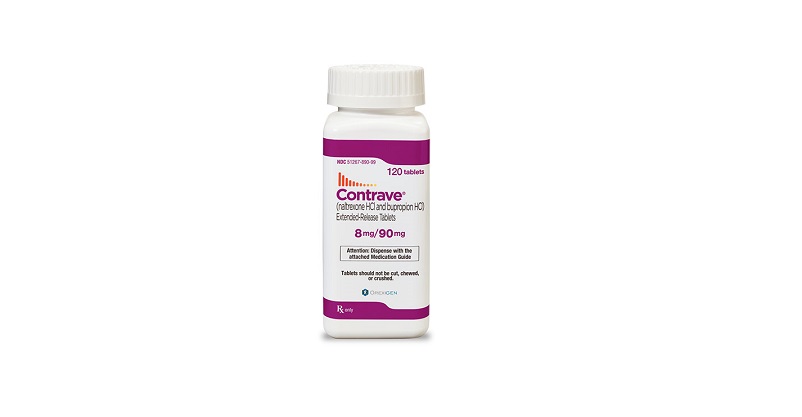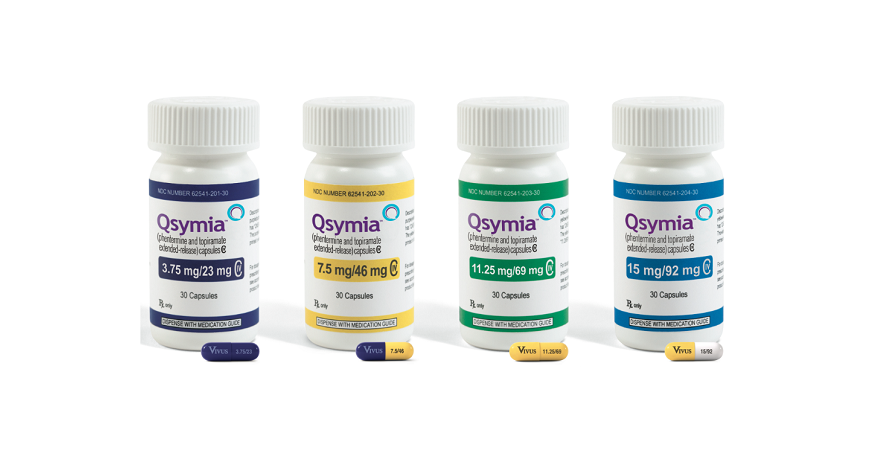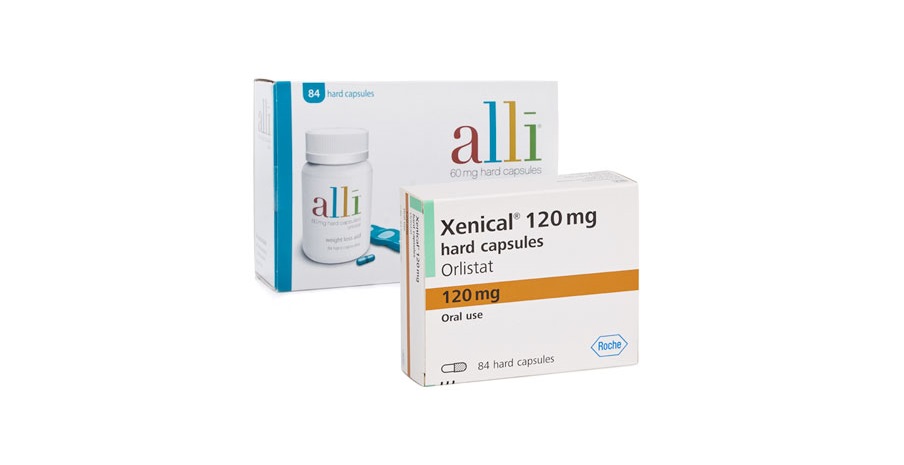Farrinstitute is reader-supported. We may receive commissions on purchases made through links on our site.
If diet and exercise alone or over the counter supplements haven’t helped you hit your weight loss goals, prescription weight loss drugs could be an option. We share the facts behind medications like Qsymia, Contrave, and others approved by the FDA to fight obesity.
Find out if you could be a suitable candidate for these medications and how to approach your doctor about getting a prescription. We also share the benefits of prescription-strength solutions and delve into potential side effects, usage, and alternatives.
Learn how the most commonly-prescribed weight loss medications work, as well as the names they’re sold under and potential side effects.

Bupropion-naltrexone is an FDA-approved obesity treatment. It’s a combination weight loss medicine taken as capsules that are prescribed under the brand name Contrave.
The compounds in Contrave control your appetite and food intake by regulating processes in your brain—the exact mechanisms aren’t fully understood. One of the factors that play a role in overwhelming cravings is brain reward dysfunction—your brain releases feel-good dopamine every time you overindulge in food [1]. Similarly, a part of your brain called the hypothalamus influences appetite control too [2].
Bupropion is a type of antidepressant that encourages chemical balance in the brain. Naltrexone belongs to the opioid antagonist family: it blocks feelings of pain relief and well-being related to drug use.
Patients taking Contrave benefited from considerable weight loss over a 56-week trial and sustained that weight loss throughout [3]. An early trial of Contrave revealed that patients lost between five and 15 percent of their starting weight and managed to sustain it.
Contrave is an effective weight loss medication, but possible side effects to watch out for include dry mouth, nausea, or headache. It might also raise blood pressure, meaning it isn’t appropriate for people with hypertension.

This drug is a combination weight loss medication approved by the FDA to treat obesity. It’s prescribed to patients in capsule form under the trade name Qsymia.
The ingredients in Qsymia work to control your appetite and suppress cravings. Alone, each promotes weight loss—together they pack double the punch [4]. Phentermine helps reduce hunger, and topiramate improves satiety and can change how certain foods taste, reducing the appeal [5]. The phentermine in each capsule is released quickly, whereas the topiramate is slow-release.
Seventy percent of patients taking Qsymia for 56 weeks lost at least five percent of their starting weight, and 10 percent benefited from a 10 percent reduction in weight [6].
Qsymia is contraindicated if you are planning to become pregnant, as it can cause birth defects. Other common side effects of Qsymia include dry mouth, mood changes, and trouble sleeping.

This compound is a weight loss medication approved by the FDA as a weight-loss treatment. It’s sold under the trade names Saxenda and Victoza, and you take it via injection.
This drug treats both type 2 diabetes and obesity. It mimics the natural appetite-suppressing hormone glucagon-like-peptide (GLP-1) to control hunger. Studies show that obese patients administered GLP-1 reported significantly less hunger than those given a placebo [7].
Trials demonstrate that, much like Qysmia and Contrave, patients consistently lost between five and 10 percent of their body weight and sustained the weight loss long-term [8]. It also has the unique advantage of lowering blood sugar and controlling diabetes.
This drug can cause a faster heart rate. People taking it may also experience fatigue, upset stomach, and dizziness.

Like Qysmia and the other medications above, orlistat is an FDA approved weight loss drug to treat being overweight and obesity that you take in capsule form. It’s sold as Xenical (prescription-strength, 120mg) and Alli (over the counter, 60mg) [9].
Orlistat promotes weight loss by limiting how much dietary fat your intestines absorb. Instead of breaking down and absorbing these fats, they don’t get digested and pass through your bowel movements.
Patients taking orlistat over 24 weeks demonstrated significant decreases in BMI, waist circumference, and cholesterol—effectively lowering high blood pressure [10]. Orlistat may help patients with type 2 diabetes control blood sugar, independent of weight loss gains [11].
Possible side effects are primarily gastrointestinal. You may experience loose stools, urgent bowel movements, and flatulence.

This weight loss medication, marketed as Tenuate, is prescribed in capsule form. Like phentermine, one of the active ingredients in Qsymia, it’s been around for decades.
Diethylpropion is a stimulant that shares similarities with drugs in the amphetamine family. It works on your central nervous system (CNS) as a potent appetite suppressant to help you lose weight. Your doctor might prescribe you the quick-release or extended-release version of Tenuate, depending on your needs.
After six months taking diethylpropion, obese patients lost an average of nearly 10 percent of their original weight. The rapid weight loss diethylpropion may help control blood sugar too [12].
You should stop taking diethylpropion if you notice your blood pressure going up. Other potential side effects include dry mouth, trouble sleeping, and irritability.

Phendimetrazine is sold under various names, including Adipost, Phendiet, Plegine, and more. It’s taken orally as an extended-release capsule.
Phendimetrazine is a compound that lowers BMI by stimulating your central nervous system. It shares similar properties to amphetamines: phendimetrazine decreases your appetite, helping to curb pesky cravings. Generally, this drug is prescribed as a short-term aid to kickstart weight loss.
A study monitoring overweight patients taking phendimetrazine over three months revealed an average weight loss of eight pounds [13]. Participants also had lower blood pressure at the end of the trial.
Due to the stimulant-like effects of phendimetrazine, it has the potential for abuse. Other possible complications patients might encounter include increased heart rate, anxiety, and difficult urination.

Benzphetamine, sold under the brand name Didrex, is prescribed in tablet-form as a weight loss treatment.
As with phendimetrazine and diethylpropion, benzaphetamine shares the same stimulating and appetite-suppressing abilities as drugs in the amphetamine family. It’s a substituted amphetamine: although it doesn’t contain amphetamines, the compounds it contains are derivative of them [14].
Doctors generally prescribe it short-term to speed up the weight loss process, alongside a healthy diet and exercise program.
Common side effects that patients report include dry mouth, difficulty sleeping, faster heart rate, and dizziness. Since it is akin to amphetamines, it carries a risk of abuse if misused.
Yes, medications such as Contrave, Qsymia, and the others we reviewed are proven to help you shed unwanted weight. Although potent, bear in mind that they’re not a permanent substitute for a good diet and regular exercise.
For some individuals with health problems or taking certain medications (e.g., for type 2 diabetes), the disadvantages may outweigh the potential gains. Your physician will determine which medication is the best fit for you.
Any compound that influences processes related to weight management (e.g., calorie absorption or appetite) that must be regulated by a healthcare provider falls into this category. Your doctor can prescribe any of the medications mentioned above (Qsymia, Contrave, Saxenda, etc.) for weight loss.
Weight loss drugs such as Qsymia and Contrave are used to treat obesity, which can reduce the many health risks a high Body Mass Index BMI carries. These medications also have the following benefits:
Certain conditions such as polycystic ovary syndrome (PCOS) make reducing your weight a challenge. Despite following a good diet and exercise regime, you may still find that dropping pounds is a frustratingly slow endeavor.
Weight loss drugs like Contrave and Q are a potent weapon in treating complications from being overweight and obesity. In turn, symptoms from such disorders can improve as your BMI decreases.
Seeing results is one of the most motivating factors to keep up with healthier lifestyle changes These medications can jumpstart the process for you, encouraging you to stick to your diet and exercise program.
Similarly, working out with a high BMI is challenging: the faster you shed extra pounds, the easier physical activity will be for you.
These medications are all but guaranteed to promote weight loss in the right candidates. Combined with an effective exercise program and nutritional guidance, they can help patients slim down and maintain a healthy weight.
Weight loss drugs such as Contrave are legal in the United States and most other countries worldwide. These anti-obesity medications aren’t blacklisted in the same way as other fat-burning compounds, such as certain steroids.
Qsymia, Contrave, and similar weight loss drugs pass clearance from the Food and Drug Administration (FDA). These FDA approved medications are an established obesity treatment, meaning that the benefits are considered to outweigh the potential risks.
Aside from the comfort of knowing that some of these medications are FDA approved, weight loss drugs are used to treat obesity under the supervision of a healthcare provider. People can’t take medicines such as Contrave without first securing a prescription, meaning your doctor will ensure it’s safe for you. This is in contrast to supplements, which are usually not regulated by medical professionals.
We answer common questions and concerns about these weight loss medications here.
On average, most people can expect to decrease their starting body weight by 10 percent or more through prescription weight loss drugs. You can also enhance the effectiveness of weight loss medications by consulting your healthcare provider for help with diet and exercise.
Usage data for these drugs indicate that any adult with a body mass index BMI over 30 and people dealing with complications from being overweight or obesity are usually the best candidates. For example, if you have high blood pressure or type 2 diabetes due to your high BMI. Or, if you’re heavy enough to suffer from weight related limitations that make everyday physical activity and tasks hard.
A doctor may not prescribe a drug like Qsymia or Contrave to people who don’t fit the right criteria. Besides assessing your unique health data, your healthcare provider could also set conditions, such as participating in an exercise program.
People who think a drug like Qsymia could be an ideal treatment plan for being overweight and obesity will want to consult a doctor. If you have weight related issues that you haven’t discussed yet and a high BMI, your doctor may deem you a suitable candidate.
Ideally, you should demonstrate to your doctor that you are trying to make health-conscious choices such as upping physical activity levels, altering diet, or discussing an exercise plan. Doctors don’t usually prescribe Contrave, Qsymia, and other drugs as a fix-all solution.
All of the pills on our list are currently legal in the United States and four (Contrave, Qsymia, Saxenda, and Xenical) are sanctioned by the FDA to treat obesity. However, the legality of some of these medications can vary depending on the country.
There’s a reason you can’t get diet pills without a prescription, whether they have an FDA seal of approval for weight loss treatment or not.
People with health problems such as glaucoma, type 2 diabetes or high blood pressure may have a higher chance of experiencing adverse effects with long term use. You should stop taking weight loss medications if you’re planning to become pregnant, as the majority are contraindicated for pregnant women.
Yes, certain diet pills—even those the FDA endorses—can have serious side effects such as suicidal thoughts, which is why people can’t get them without a prescription. Your healthcare provider will discuss specific adverse effects to watch out for based on what you’re taking (e.g., Qsymia, Contrave, or another medication).
If you’re about to become pregnant, you may want to discuss the short term use of these medications with your healthcare provider. Other potential effects include:
Use weight loss medicines like Qsymia as directed by your healthcare provider to ensure you lose weight while staying safe. To further lower your BMI and body weight, start making lifestyle changes such as increasing physical activity.
If you notice adverse effects from these medications, stop taking prescription weight loss drugs and report them to your medical practitioner straight away.
If your healthcare provider doesn’t agree to prescribe you Qsymia, Contrave, or other weight loss medications, don’t despair. Similarly, people who have to stop taking their diet pills for whatever reason can opt for a non-prescription, over the counter alternative.
Those taking other medications should always check in with your doctor first before starting a new supplement.
Weight loss medicines like Contrave can help you lose weight if you’re at a point where all else has failed or your BMI is dangerously high. When administered under medical supervision, these medications are safe and effective and can be transformative in your weight loss journey.
If you aren’t eligible for a prescription, over the counter solutions such as Zotrim and PhenQ can be viable alternatives to kickstart fat burning and help you trim down. You can also look into meal replacement shakes as another effective weight loss aid.
{
“@context”: “https://schema.org”,
“@type”: “BlogPosting”,
“mainEntityOfPage”: {
“@type”: “WebPage”,
“@id”: “https://farrinstitute.org/prescription-weight-loss-pills/”
},
“headline”: “Are Prescription Weight Loss Pills Right For You?”,
“description”: “If diet and exercise alone or over-the-counter supplements haven’t helped you hit your weight loss goals, prescription weight loss drugs could be an option. We share the facts behind medications like Qsymia, Contrave, and others approved by the FDA to fight obesity.”,
“image”: “https://farrinstitute.org/wp-content/uploads/2021/03/weight-loss-pills-1-scaled-1-1536×864.jpg.webp”,
“author”: {
“@type”: “Person”,
“name”: “Hannah Cooper”,
“url”: “https://farrinstitute.org/author/hannah-cooper/”
},
“publisher”: {
“@type”: “Organization”,
“name”: “Farr Institute”,
“logo”: {
“@type”: “ImageObject”,
“url”: “https://farrinstitute.org/”
}
},
“datePublished”: “2020-12-17”,
“dateModified”: “2023-05-26”
}